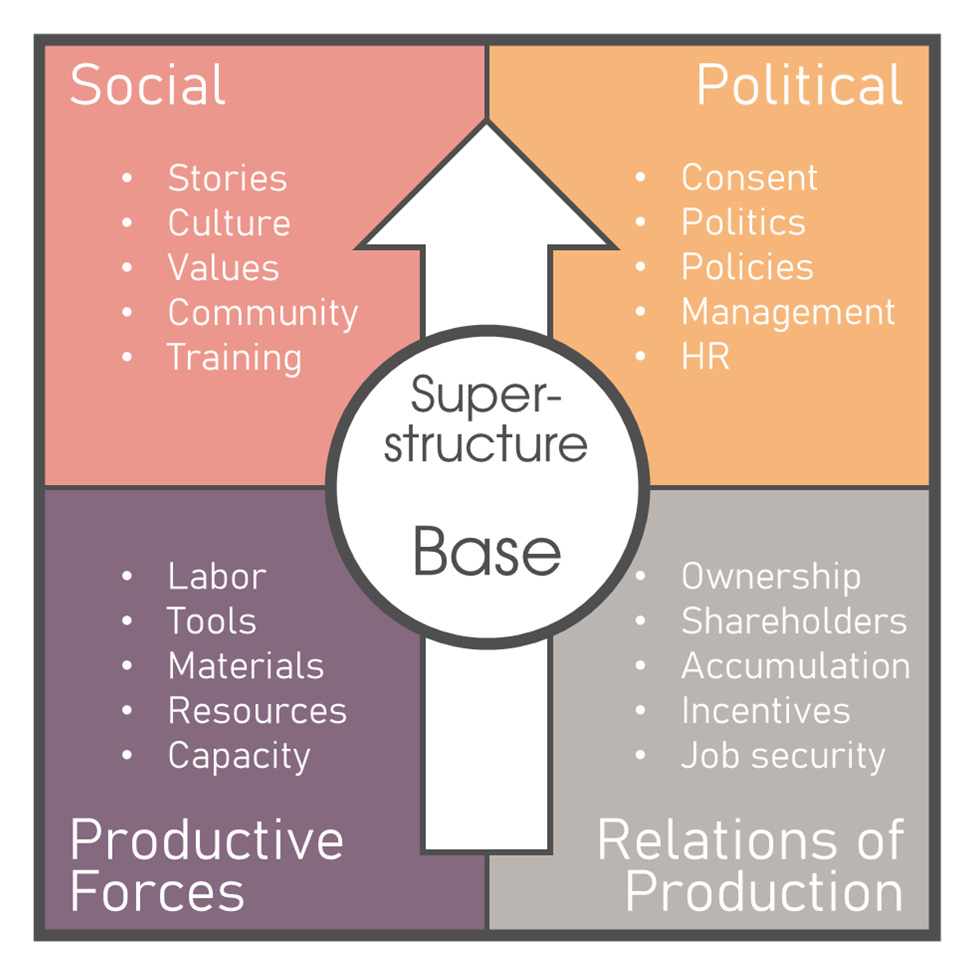Trust and Reciprocity
Elinor Ostrom | Culture Isn't Talk | Factoids | Elsewhere
Quote of the Moment
When individuals are well informed about the problem they face and about who else is involved, and can build settings where trust and reciprocity can emerge, grow, and be sustained over time, costly and positive actions are frequently taken without waiting for an external authority to impose rules, monitor compliance, and assess penalties.
| Elinor Ostrom
Ostrom won the Nobel in economics for her ‘work studying the properties of successful, durable commons’ (as Cory Doctorow put it).
But the idea she sketches is also a model of how enlightened, emergent organizations work, relying on autonomy and trust rather than rules and authority.
Culture Isn’t Talk
I read an essay by Charles Lambkin last fall with great interest, entitled Culture Isn’t Talk. I want to focus on a few of the most striking ideas he offers up.
He sets context:
Corporate culture is not as mysterious as we often make it out to be.
To see this, however, we must first admit certain things leadership often does not want to admit. Chief among these—surprise, surprise—is what actually determines culture.
Executives tend to treat culture as a sort of branding exercise, as something they can simply speak into existence.
He turns to Karl Marx (after Edgar Schein’s pyramid doesn’t really answer his questions):
My own preferred model is the Marxist concept of “base and superstructure”. The idea here is that culture and cultural byproducts are largely (though not only) a manifestation of underlying economic realities and incentives. Thus, if we want to change the cultural superstructure, then we need to target the underlying economic base.
We need to change what is being operantly conditioned by the punishments and rewards in the environment. The base is a given power dynamic acting in the world. It generates superstructure as an experiential lens and culture grounded in the prevailing base dynamic. Superstructure stems largely from the economic base, the structure, and also from past superstructure. The model is beautiful in its simplicity. It’s refreshing. And most of all, it’s honest.
Executives want to keep culture change initiatives confined to superstructure, to things like narratives and values and branding. They want culture change while keeping the existing power dynamics that actually generate culture unchanged. In other words, they want culture change for free.
He goes on to make the claim that
What is incentivized is policy—all else is lip service. When the lip service does not match actual incentives and leadership behavior, the organization is incongruent.
[…]
When executives pretend their superstructure branding is what determines culture, they assume they have some spell-casting power they do not actually possess.
He offers this diagram that shows Sean Delaney’s negative ‘leadership shadow’, when actual culture’s overlap with claimed culture is small, there’s a shadow cast.
His conclusion (excerpted):
If a company incentivizes staying busy above increasing throughput, then it is telling us that in all honestly people staying busy is more important than throughput. That’s the culture.
If a company says it values agility while only rewarding velocity, then that’s the culture.
If a company claims it prizes innovation and fearless risk taking but punishes failure, then it’s a risk-averse culture, regardless of the lip service.
We need to admit that culture isn’t talk.
Factoids
The bigger the car, the smaller the heart
In 2012, social scientists found that those driving more valuable cars were less likely to stop for pedestrians at a crosswalk.
Tokyo, the nicest place to live in the world, is shrinking
The newest population estimates show that the world’s largest city – Tokyo – has a population of 37,115,035. The city, like the whole of Japan, is experiencing a population decrease. Over the past year, Tokyo marked a decline of 79,070 residents, or 0.21%.
Money
Based on their current account balances, income, saving and investment behavior, three in four workers in our sample are not saving enough for retirement.
| Federal Reserve Bank of Chicago
…
The Department of Labor issued a final rule that will make millions more workers eligible for overtime pay. Workers making less than $58,656 will automatically be owed time and a half when the rule takes effect in January.
Work Futures is a reader-supported publication. To receive posts in your inbox please become a paid subscriber. If you only lurk, I won’t shame you.
Elsewhere
Shawn Fain Has Ambitions Larger Than The Labor Movement
Shawn Fain, the President of the United Auto Workers, has aspirations larger than the next unionization effort. He is taking a head-on stance against what he thinks are the largest challenges to the U.S., and it’s not immigration at the Mexico border. As Olivia Rosane
…
Governed by Psychopaths
Quote of the Moment
We are a society of altruists governed by psychopaths.
| George Monbiot
…
Work Doesn’t Have The Heft To Be A Religion
In When Your Job Fills in for Your Faith, That’s a Problem, Carolyn Chen digs into the life impacts when work becomes too much like a religion to which you dedicate your all. In the final analysis, work doesn't have the heft to be a religion:





